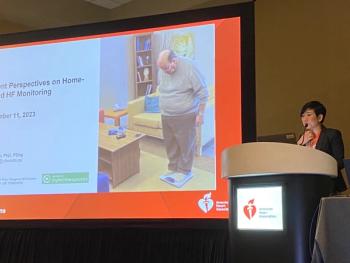
Streamlining the pre-admission testing process reduces same-day cancellations
A patient-centric approach to pre-admission testing can reduce costs and help hospitals run more efficiently.
Day-of surgery cancellations cost hospitals and insurance companies millions each year. Since surgeries can total up to 60 percent of hospital revenue, these cancellations significantly eat into the bottom line as the OR remains empty, anesthesiologists are idle and patients are left waiting after a night of fasting. Additionally, many patients are subjected to a standard battery of tests that may not be necessary for their situations. These tests can result in false positives, resulting in day-of surgery cancellations as well as adding unnecessary costs to the pre-admission process. All this costs hospitals upwards of $80 per minute for unused ORs.
Not every patient needs the same battery of tests, and by taking a patient-centered approach to pre-admission testing, not only can cost savings be increased but hospitals can run more efficiently. Most hospitals know how difficult it can be to coordinate pre-admission testing. In response,
In the past, surgeons would order as many tests as possible prior to surgery: full blood work panels, EKGs and x-rays, with the idea that if the anesthesiologist had all that information, the case would not be canceled. What evidence shows, however, is that unnecessary testing increases costs, particularly for insurance companies, and increases patient dissatisfaction. Patients not only have to travel to several locations for tests but are then denied surgery due to false positives, which happen in otherwise healthy patients.
A patient-centric approach
The patient-centric approach takes each patient’s medical history into account. A pre-admission testing program should include guidelines and algorithms based on high-, medium- and low-risk procedures, as well as patients’ comorbidities. The same surgeon performing the same surgery on two different patients may order different tests based on the patients themselves.
For example, two patients may be having knee surgery. One, an otherwise healthy male in his mid-50s who exercises routinely, with no medical problems, no medications and no comorbidities who is having the surgery due to an athletic injury would most likely undergo basic blood work as a low-risk patient. The other patient, also in his mid-50s, with diabetes, high blood pressure, obesity, sleep apnea, multiple medications or a cardiac stent, would be considered high risk and need a cardiac evaluation, EKG, more blood work and blood glucose testing.
Testing in advance
It’s important to stress pre-admission testing before the day of the procedure. This allows the surgeon and anesthesiologist to review and coordinate prior to the procedure so that resources can be allocated properly. The patient and family will know whether or not to take time off work for that day. This reduces the incidence of same-day cancellations and increases satisfaction, as well as ensures that the OR is booked accordingly.
Emphasis on coordinated care
Coordinated efforts among anesthesiologists, surgeons, hospitals and primary care physicians also help reduce same-day cancellations. Part of streamlining the pre-admissions testing process means that, if one patient is still waiting for a cardiology review prior to surgery, but the surgeon has another case scheduled, the second patient can go first, and the patient waiting for cardiology can be taken later in the day.
These open lines of communication not only improve OR efficiency but also provide the patient with care better tailored to his or her situation. Rather than risking a false positive on an unnecessary potassium screening, for example, a formal pre-admission testing process can determine the tests needed to ensure safety and allow the patient to have his or her procedure as soon as possible. It turns a fragmented system into a coordinated system to save money and provide better care.
Newsletter
Get the latest industry news, event updates, and more from Managed healthcare Executive.























